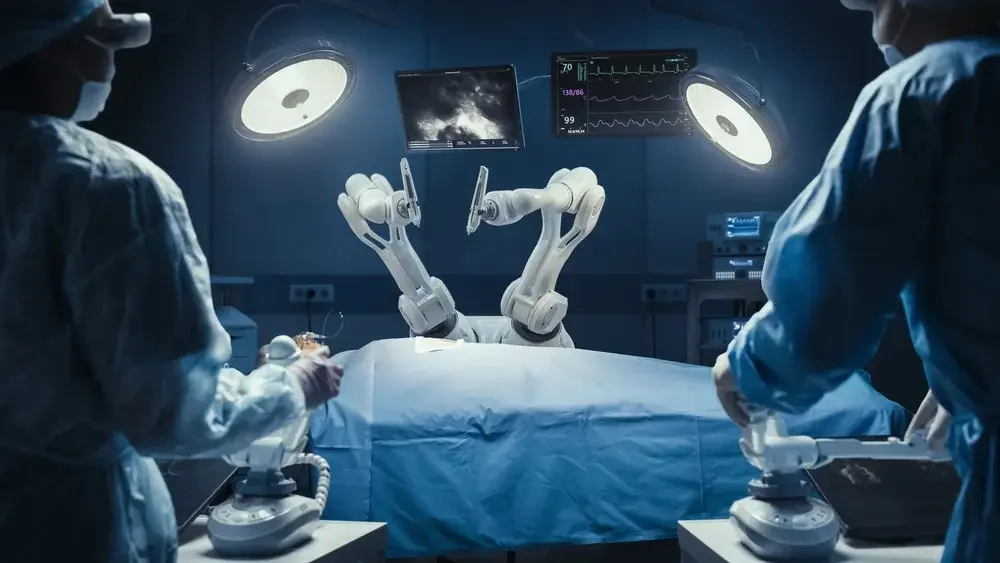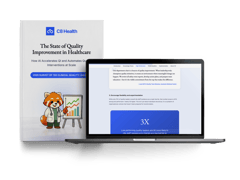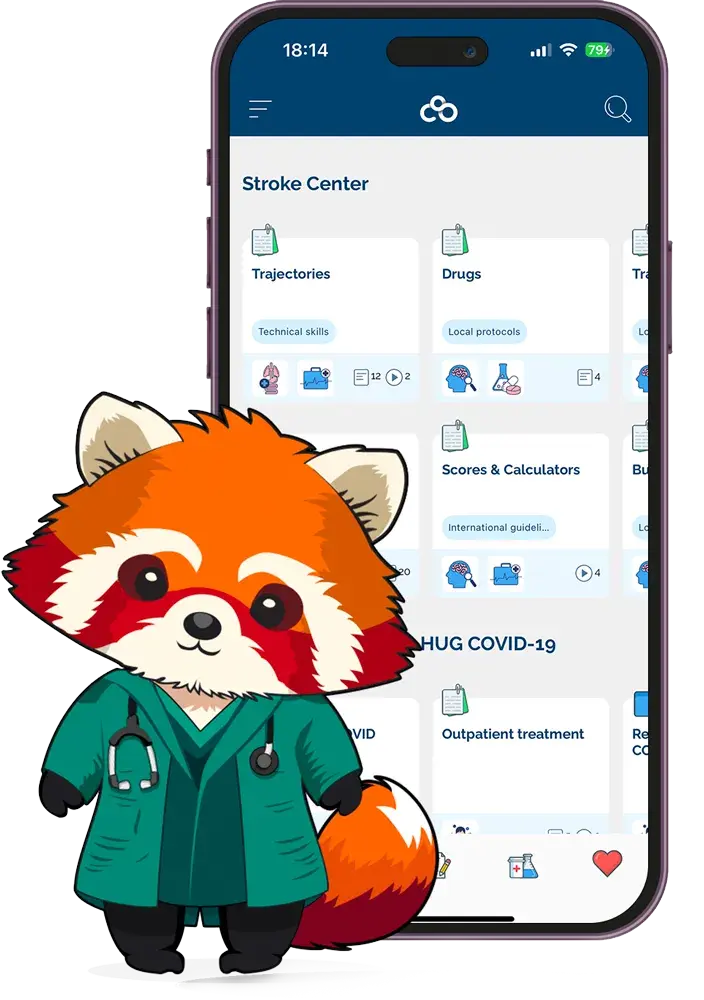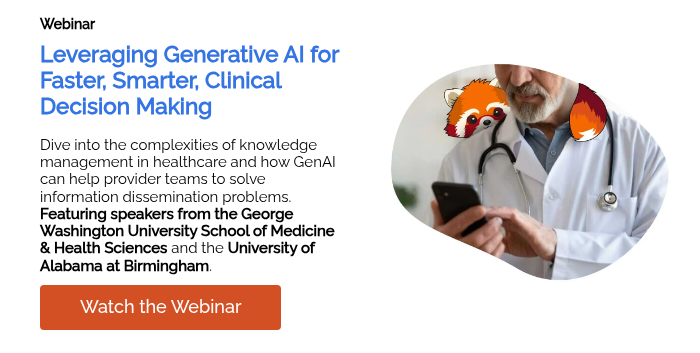
How Has Technology Improved Healthcare: 5 Examples
Once upon a time, clinicians evaluating a disease made many assumptions. They relied on intuition and physical examinations, often with limited success. The process was ineffective, and there was a lot of room for medical errors.
Thankfully, technology has transformed the field. Diagnostics are improving every year, and there's always a new, cutting-edge treatment on the horizon. The processes are becoming more precise, effective, and accessible.
Below, we'll explore some examples of how technology is benefiting healthcare and improving patient outcomes.
» Experience the benefits of new tech in healthcare through clinical resource management
1. Real-Time Monitoring Using Wearables
Previously, clinicians relied on bulky equipment and frequent blood tests for vital sign monitoring. This approach offered limited data points and often disrupted patients' daily routines.
» Explore different types of health information technology
They can now use wearable sensors to continuously track vital signs. These compact devices collect real-time data, providing a detailed picture of a patient's health. Thanks to this small sensor, the doctor can remotely oversee their heart rhythm or blood sugar levels.
Here are some specific examples:
- Electrocardiogram smartwatches can continuously monitor your heart rhythm to detect atrial fibrillation and similar irregularities before they cause serious health problems.
- Clinicians can insert small sensors called continuous glucose monitors under the skin. They can track blood sugar levels for patients with diabetes 24/7.
- Smart wearable patches that track your sleep patterns, heart rate variability, and even skin temperature. These devices can help identify potential sleep disorders.
With a constant stream of data from this new technology, doctors can intervene early if they notice concerning trends, potentially preventing complications and improving overall patient outcomes, which benefits healthcare.
» Find out how well-defined policies benefit your hospital
2. Streamlined Care via EHRs
As of 2021, 96% of healthcare facilities are using electronic health records to their benefit. They can compile patient information from doctor's notes, lab results, and medication lists so that clinicians can get a detailed view.
» Witness the new era of health administration ushered by cloud technology
In many healthcare facilities, patients can also access their medical history online. They can review test results, track their progress over time, and consult their physicians through secure messaging platforms.
According to the Centers for Medicare & Medicaid Services, this tool improves patient care by:
- Lowering the chance of medical error
- Supplying the health information reduces duplication of tests and delays in treatment
» Learn more about healthcare management and its role in teamwork
3. Clinical Resource Management
Clinical resource management is a technology that has impacted healthcare cost-effectiveness and quality. It optimizes resource allocation by ensuring a hospital uses the right staff, equipment, and medications for each patient.
» Learn the benefits of clinical resource management automation
It also emphasizes using resources effectively to deliver the best possible care. It involves using evidence-based practices, reducing variation in treatment, and ensuring that patients receive the most appropriate care setting (e.g., outpatient vs inpatient).
For example, C8 Health is a platform designed to support this approach to healthcare. It acts as a central hub for all clinical resources, such as protocols, guidelines, and educational materials. This eliminates the need for staff to search through scattered folders or outdated documents.
» Find out how to share knowledge and best practices between hospitals
You can also disseminate content across your organization and notify users about changes in clinical guidance. The whole staff is updated in real-time on any information you need to convey via push notifications on their mobile devices.
4. More Surgery Precision Through Robotics
Health professionals can now use robotic arms to their advantage in procedures like eye surgery. The method minimizes chances for errors and speeds up patient recovery. Here are more ways machines are helping in various healthcare procedures:
- Surgeons can use robotic arms to perform a laparoscopic cholecystectomy and remove the gallbladder. It speeds up recovery and causes less pain compared to the traditional approach.
- They can also use it for hiatal hernia repair, correcting an upward protrusion of the stomach through the diaphragm. The robotic arms make precise incisions to lower the risk of complications.
- Health professionals can also use robotics for minimally invasive colon resections of conditions like inflammatory bowel disease or colon cancer.
» Check out the pivotal role AI plays in healthcare for better efficiency
5. Expanded Reach With Remote Care
Clinicians can also see patients via mobile apps or videoconferencing. This "telehealth" may offer significant benefits by helping treat patients in distant areas or those with limited mobility. Healthcare professionals can manage chronic conditions remotely, freeing up time for in-person appointments.
» Find out how mobile technology in healthcare helps with teamwork
But, only some people have access to reliable internet or the necessary technology. Some conditions also require physical examinations, rendering this approach obsolete. Finally, there are concerns over patient data privacy and security in a virtual environment.
» Discover how technology is streamlining clinical guidance
Importance of Clinician Participation When Developing New Technology
Clinicians should be involved in the creation of healthcare technology from the very beginning. Their insight would ensure its effectiveness and practicality in real-world scenarios, which would impact how it's used.
» Learn how to find gaps in healthcare and close them
Let's say a team of engineers is developing a new wearable heart monitor. A cardiologist on the team can provide invaluable feedback on factors like:
- Where on the body should the team place the sensors for the best reading and patient comfort?
- How can the collected data be displayed clearly and concisely so that doctors and patients can understand it?
» Explore more of the latest advancements in medical technology
A Look at the Future of Tech-Driven Healthcare
The impact of technology on healthcare is undeniable; what we listed is just the start of a future where we can diagnose illnesses quicker, personalize minimally invasive treatments, and offer care in any corner of the world.
But, ethical considerations remain regarding data privacy and access, the high cost of some technologies, and the potential for job displacement in the healthcare sector. We should address these concerns as we move forward if we want to ensure that tech innovation improves everyone's lives.
» See the benefits of technology for healthcare coordination firsthand, or watch our latest Webinar to see how AI is shaping the future of medicine.


